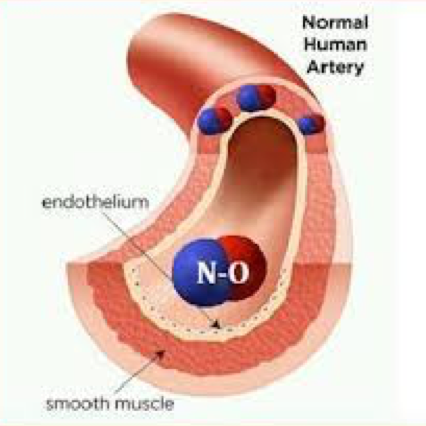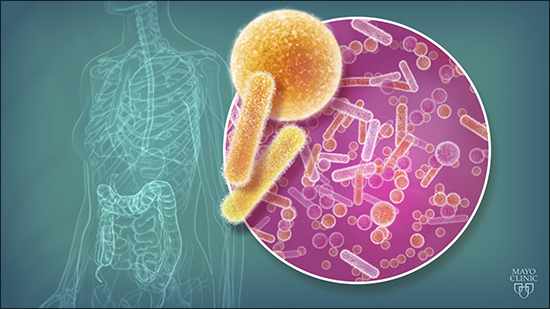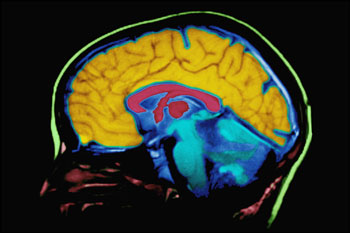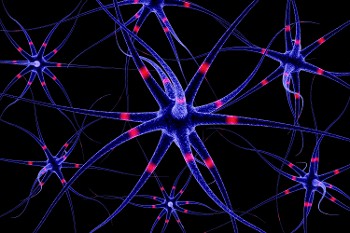Is Inflammation the Holy Grail of Aging?
By Dr. Ashraf Girgis ND.
|

|
Aging is a natural process no one can avoid. But, can we age gracefully without aches, pain, and diseases? It would be nice if we could preserve our youthfulness and prevent wrinkles. But, let us focus on the serious side of aging, rather than nitpick our cosmetic flaws. According to a government census taken in 2012 there were 43.1 million individuals over the age of 65 years old. This number is predicted to double by the year 2050. This increased number will undoubtedly raise the cost of healthcare. While we wait for politicians to make healthcare more affordable, let’s also hope that scientists are working feverishly to improve the quality of life for those in their golden years. Hopefully they will be able to slow down the aging process for all the revolutionary and not-so-revolutionary baby boomers, or at least they’ll improve the process of aging. To do that, however, they really need to understand what causes aging.
|
|
|
|
|
There are many contributing factors to aging. However, it seems that chronic inflammation has started getting lots of attention in recent years, climbing to the top of the chart of all other causes of aging. Chronic inflammation is linked to many diseases that eventually lead to our mortality. The most important causes of aging are: inflammation, food, stress, hormonal changes, genetics, mTOR( a protein that regulates the metabolism of a cell as well as its growth and survival), telomerase ( enzyme responsible for maintenance of the length of telomeres) and free radicals.
As I alluded to earlier, more scientists are starting to believe that inflammation could be playing a much bigger role than previously assumed. For example, cardiovascular diseases are the number one causes of death and illnesses in the United States and around the world. Previously, scientists believed atherosclerosis was a big concern, and their focus was on lipid levels. That is why maintaining a healthy cholesterol level is given so much importance. However, scientists now believe that inflammation may be the primary culprit. This results in heart attacks, high blood pressure, strokes and more. Scientists are now starting to debate the way cardiovascular diseases are treated.
|
 |
|

|
Despite the clear necessity of placing stents or performing surgeries, they are also studying cardiovascular disease treatment with the intention of changing of lifestyles for the better, which may be the MOST reasonable route in saving lives. Vishwa Deep Dixit, a researcher at Yale University School of Medicine, is singling out inflammation as a common factor in a number of other age-related diseases such as diabetes, gout, Alzheimer’s, and arthritis. “This is the first study to show that inflammation is causally linked to functional decline in aging”, Dixit stated.“There are multiple triggers of inflammation... but we’ve pinpointed Nlrp3 as the specific sensor that activates inflammation with age”.
Studies have shown an increased number of biomarkers of inflammation in patients with age-related diseases. In older, healthier populations, there is less or an absence of these biomarkers. An example of these studies was done by Luigi Ferrucci, and co. published on Pubmed. The scientists collected age factor biomarkers from 595 men and 748 women, all between the ages of 20-102. They noticed an increase of biomarkers such as C-Reactive protein, IL18, IL-1ra, Fibrinogen, and IL6. IL6 receptors all increased significantly with age. This data suggests the relationship between aging and inflammations may result in chronic diseases. |
|
As you may recall from my previous articles and discussions, inflammation is a protective and natural response taken by our body against invaders or anything perceived as an invader, and it has a protective role against bacteria, viruses, allergens, and irritants. While many things can lead to inflammation, some of the most important impacts we have on our body is the food we eat, the environment we live in, and how we manage our stress. I suggest you look for my upcoming book about inflammation and how to protect yourselves against it. On many occasions, I address the issue of how keeping our gut healthy plays a very significant role.
However, if the body constantly suffers from chronic inflammation, then symptoms of diseases start to flare up and destroy our body’s homeostasis, or balance, which can give rise to many diseases such as cardiovascular disease, cancer, and arthritis. So finding the cause of inflammation and taking appropriate steps to prevent can increase our chances of living a long life and preventing age-related diseases.
As I’ve stated on numerous occasions, it is very important to know that food, nutrients, and gut health play essential roles in preventing inflammation, as 65-80% of our immune mechanisms are inside our guts. Keeping the balance of the microbiome is extremely essential in creating this balance. Cleansing the gut of cumulative toxins through the use of nutrients rich in fibers combined with foods that can provide pro and prebiotics is also important.
|
 |
 |
We have all heard the infamous quote “We are what we eat”. We do know that eating less animal fat and more vegetables and fruits are good for us in terms of reducing heart disease. We also know the relationship between diet and cancer. A study of food restriction in individuals between 2-15 of years showed significant reduction in body weight, cholesterol, glucose and blood pressure. A number of clinical studies suggest diets high in calories and fat are associated with inflammation than leading to cardiovascular diseases, type 2 diabetes, dementia and other age related issues. Also, much evidence shows the effect of fat in cardiovascular diseases (trans fats, saturated animal fat, polyunsaturated fats). Other effects of nutrients like vitamin D and calcium in osteoporosis and bone fracture are well recognized. Basically, nutrients we eat have a direct effect on aging. Some scientists believe nutrients received in childhood and even during gestation may influence the later development of aging related diseases and lifespan length. So what we eat matters greatly.
If you are a regular visitor to our site and have been reading my articles about inflammation, you already know what types of food are good for you. But here I’d like to place special emphasis on foods that cause allergies or are irritants. We are all familiar with gluten sensitivity and gluten is a big culprit in many irritations. But milk and dairy products can cause inflammations in millions of people. Scientists at Harvard published a study in 2013 that showed effects of dairy products, such as cow milk or cheese, on the reduction and changes in gut bacteria. Studies indicated that two days after consuming an animal based diet that the number of bad bacteria, fungi, and viruses increased.
|
|
The first time scientists found out the relationship between animal based diets and the change in microbiomes was by Cleveland Clinic scientists. They found out that when bacteria feeds on the chemical Choline, which is found in dairy products, red meat, and eggs, that the gut produces a chemical compound called TMA. This compound later on changes in the liver to TMAO, causing the hardening of blood vessels, therefore increasing the risk of cardiovascular diseases. In addition, it is important to eliminate food and beverages filled with chemicals and preservatives, GMOs, and processed meats, which contain Nitrosamines. Processed meat are hot dogs, canned meats, bacon, beef jerky, corned beef, salami, smoked meat etc. The list goes on! Highly salted food or saturated animal fat as well as vegetable oils such as corn, sunflower, safflower can increase or cause inflammation due to their higher ratio of omega 6 to omega 3. Increase of omega 6 can cause inflammation in our body. Soybean products, whether they be soybean oil or burgers, unless they are organic, need to be avoided. In addition, processed soybean products contain lysinoalanine and nitrosamines. These toxins that can lead to inflammation. Unfortunately, soy is one of the most genetically modified crops in American markets beside corn. And of course, sugary foods and commercial dressing filled with sugar and high fructose corn syrup, soft drinks, artificial flavors, harmful emulsifiers and other chemicals need to be avoided.
Another important issue relating to inflammation is the environment we live in. There is no doubt any longer that environmental toxins, chemicals, and pollutants can impact the physiological balance in our body. These as well result in inflammation, premature aging, or diseases such as cancer, respiratory and cardiovascular disease.
|
 |
 |
Environmental pollutants and chemicals adversely influence homeostasis by causing inflammation which frequently result in the development of certain diseases at an earlier age than expected. A study by Park et al. (2006) concluded “elderly men with metabolic syndrome were more susceptible to autonomic dysfunction in association with chronic lead exposure”. In another study, long term exposure to traffic pollutants in elderly men resulted in increased blood pressure, cardiovascular disease and stroke (Schwartz et al.2012). A study in Korea (Kim and Hong 2012) showed that exposure to air pollution resulted in elevated insulin resistance possibly leading to metabolic syndrome. In another study (Bae et al 2012), exposure to bisphenol (a product commonly found in bottled water and canned food and many other products) can result in lower heart rate and increase in blood pressure, especially in elderly populations, leading to cardiovascular diseases. These are just a few examples. We know how much of an important role the environment plays in developing cancer as well as many other diseases.
Bae et al. (2012) reported that bisphenol exposure was associated with increased blood pressure and decreased heart rate variability, suggesting that the elderly might be more susceptible to the possible cardiovascular effects of this ubiquitous endocrine-disrupting agent. Chinese scientists have found a type of gut bacteria that seems very promising in preventing inflammation and build up of fatty plucks inside arteries. It is called Akkermansia muciniphila. Akkermansia muciniphila is a protein that keeps the inner of the gut very tight. Therefore preventing toxins passing through the guts to the bloodstream that lead to inflammation in various system.
|
|
Stress can also increase inflammation and aging. As someone who has a certification in stress management and has worked as a stress management consultant, I believe stress may be the most obvious of all the causes of inflammation that lead to aging. This can both be physical and mental stress. One of the examples I like to use when I give talks is a comparison of American presidents before and after their election. If you compare pictures of presidents Bush and Obama before and after their presidencies, it is amazing how much they aged during their 8 years in office. Another example is those who lose a loved one unexpectedly; the change is almost overnight. There is a statement by Hans Sylay, the father of stress, who famously stated, “I have performed many autopsies; I have yet to see people dying of old age”. What he was implying is that stress causes much of the damage leading to death. Dr. Owen Wolkowitz and colleagues at University of California, San Francisco (UCSF) have associated stressful life experiences in young age with accelerated aging. A study published in September 2013 showed for the first time that stress management and lifestyle changes can result in longer telomeres. As mentioned above, longer telomeres indicate a longer lifespan.
According to researchers, there is a connection between healthy gut bacteria, the central nervous system, and our brain that can lead to stress, anxiety, depression, and Alzheimers. The study was done on pigs and was published in 2017. They found out that a higher level of healthy gut bacteria called Ruminocaccus resulted in lower levels of stress. So keeping healthy gut bacteria will help you prevent inflammation in your gut.
|
 |
 |
As I mentioned, inflammation in various other systems of our body can be the result of sensitivities to certain food and environmental toxins and stress. If local inflammation in our guts turns into chronic inflammation, it will lead to the loosening of gut linings cells. This allows foreign agents to leak into our various systems through our blood vessels instead of going the regular path and passing through the liver. This creates an autoimmune response in our body. Depending which part these food particles escape to, an inflammatory response could occur in this specific location.
|
|
So it is not surprising to see that inflammation is becoming holy grail of aging. Many of our disease are clearly consequences of inflammation in our gut lining. So if you are suffering from inflammatory diseases, feel free to visit the our website to learn more about lifestyle changes that can benefit your health. Also, look for my new book coming out soon about inflammation. Meanwhile, feel free to buy my book on “The Holistic Approach To Stress Management’. Oftentimes, when I give presentations, people will ask me what is the best approach to managing stress among all approaches. I suggest a three action plan to use all day. First, conduct a mindful life. Second, try to have at least some form of excise for 20-30 minutes daily (best to reach 45 minutes 5 days a week) as well as to conduct a well-balanced social life. But always remember you are what you eat. So make sure to have healthy a diet.
|
 |
|
|
|
Additional Articles

Feeling Younger Than Your Age Could Be a Good Sign For Your Brain Health, Scans Suggest
Read More
|

Eat Smart for a Healthier Brain
Read More |

What Does the Research Say About Essential Oils?
Read More |
|
|
|

Mechanism of MS: A Complex Mosaic
Read More
|

What are alternative treatments for diabetes?
Read More
|

How To Lower C-Reactive Protein
Read More
|
|
|
|
|